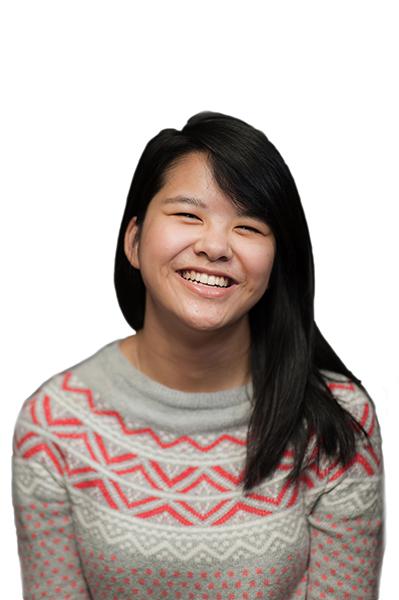The Spectrum: Behind the counter of a bubble tea shop

April 19, 2015
This essay is part of The Spectrum, a weekly forum in our Opinion section for marginalized voices to share their perspectives. To submit a piece for The Spectrum or discuss story ideas, please email [email protected].
It’s easy. Put the sticker on the cup. Get a shaker cup and fill it with the right amount of sugar, milk powder, tea and ice. Put the shaker cup into the shaker with its cap for a minute. Once I pour the drink and skim the foam, I’m done. I call out the number on the sticker and serve up another piece of my culture to someone who has paid for it with American bills. It’s easy, and it’s not easy.
It’s not easy for me to find spaces on campus where I feel comfortable expressing my Chinese-American identity. In the classrooms of Asian-American studies professors, certain things are okay to say and feel, while others are left unsaid. A good chunk of my friends here are Korean-American. So as much as I don’t like admitting it, there’s a gap between us that can be hard to bridge sometimes. Even Asian-American student groups are not always constructive to my growth as a Chinese-American; although we are all able to bond over certain shared experiences, there are many unspoken opinions about those experiences that create tension. So imagine my surprise when I found perhaps the best representation of my Chinese-American identity working behind the sticky counters of Kung Fu Tea in Evanston.
Over the last month I’ve worked there, I’ve served hundreds of drinks to all different kinds of people. Some are Northwestern students, some are families, some are white, some are black, some are Asian, some are old, some are young. Some walk up to the counter confidently when they order, familiar with the options, and some take a bit longer, considering the novelty of bubble tea and asking questions before asking for a recommendation.
Bubble tea is “new” to a lot of people because for the most part, it’s still pretty authentic. Invented in Taiwan during the 1980s, it became popular in Asia during the 1990s and eventually came overseas and is available now in nearly every major city. It’s a lot more Taiwanese than sesame chicken, I promise you that.
Most of our new customers really like the authentic taste of their drinks, even if they were unfamiliar with it at first. But I can’t help but notice how I pay closer attention to white customers when they take that first sip to see if they like bubble tea. Even though I tell myself it doesn’t matter if they don’t, there’s a part of me that is inherently tied to the authenticity of the bubble tea that feels defensive and ashamed when rejected. Some of my Asian-American co-workers also admit to being especially accommodating with white customers visiting for the first time. It’s ironic that even though we’re the ones who know how to make the drinks, we still feel pressured to behave deferentially to them.
But there are also many Taiwanese and Chinese graduate students, who have a stronger claim to bubble tea than I do, who frequent the shop. Some of them try to order in Mandarin, and I always feel bad when I have to make them switch to English because I don’t know the Chinese names of the drinks. There’s something highly uncomfortable about being forced to order food that originates from your culture in a foreign language. Unfortunately, my Chinese-American identity has its limitations, and I am not authentic enough for them.
When we close at the end of the day, all the customers are gone and do not matter, and I can reclaim the space for myself as I methodically wipe down all the counters and tables that remain sticky no matter how many times I wipe them.
At the same time, I wish that I could wipe all the remarks and looks from the surface of my Chinese-American identity clean and forget that in this country I will never get to choose what parts of me are assimilated and what parts are rejected. But I can’t, and for now and perhaps my entire lifetime, I have to continue to bridge that space between assimilation and authenticity. It’s not easy.
Bethany Ao is a Medill sophomore. She can be reached at [email protected]. If you would like to respond publicly to this column, send a Letter to the Editor to [email protected].

